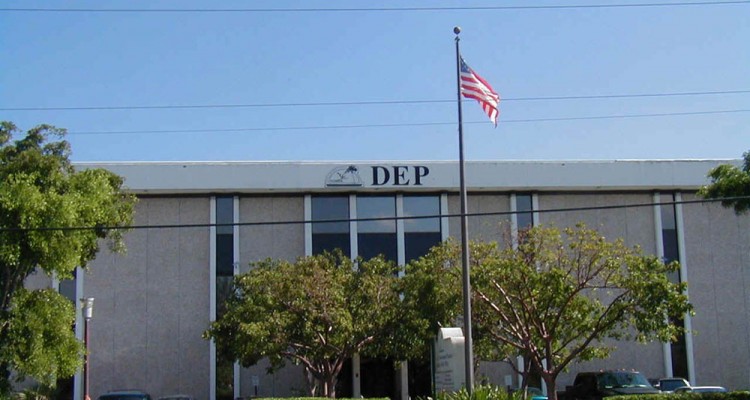By Tristram Korten
Florida Center for Investigative Reporting
The Florida Department of Environmental Protection is not enforcing laws against companies responsible for hazardous materials pollution or collecting the fines it could from polluters, according to a study released Thursday by an environmental group.
The report, by the Florida chapter of Public Employees for Environmental Responsibility, examined several years of public records and found that DEP enforcement efforts have been significantly scaled back. Enforcement cases filed by the agency have declined 82 percent since 2011. Hazardous waste assessments, in which the department has found a violation against a perpetrator, have declined 80 percent since 2010.
Some hazardous waste permit holders “have never been inspected before, ever,” said Jerry Phillips, director of Florida PEER and a former enforcement attorney for DEP.
The PEER report states that under Gov. Rick Scott the department’s policy has been to work with polluters to bring them into compliance rather than punish them. DEP claimed in 2012 that this “compliance assistance strategy” had resulted in hazardous waste non-compliance rates dropping from 10 percent to 2 percent. The PEER report states that the public records substantiating this statement were requested and that the DEP provided a spreadsheet that did not have enough details to support the claim.
A DEP spokesperson told the Florida Center for Investigative Reporting that the agency would not respond until state officials had reviewed the report. (This item will be updated with DEP’s response when available.)
The laws regulating hazardous material handling and their disposal were established in the federal Resource Conservation and Recovery Act of 1976. The U.S. Environmental Protection Agency is responsible for enforcing the law. The PEER report states that the EPA delegated permitting and enforcement powers to DEP in a 2014 agreement. In exchange, DEP received $2.8 million in 2015 for enforcement.
“It’s taxpayer money that’s not being spent very well,” Phillips said.
PEER’s report includes 10 case studies of companies that were caught violating the law and the lax enforcement they faced.

